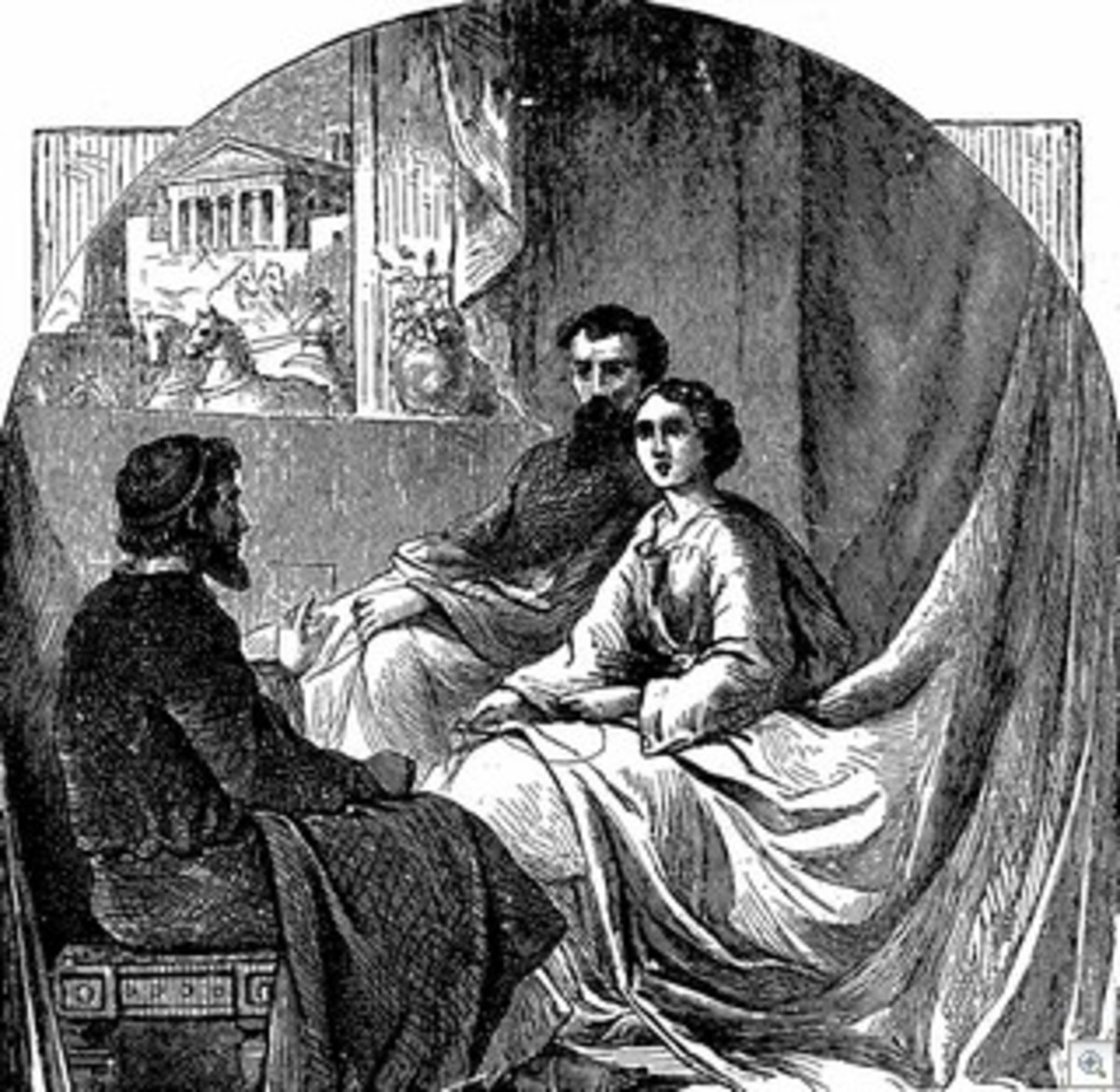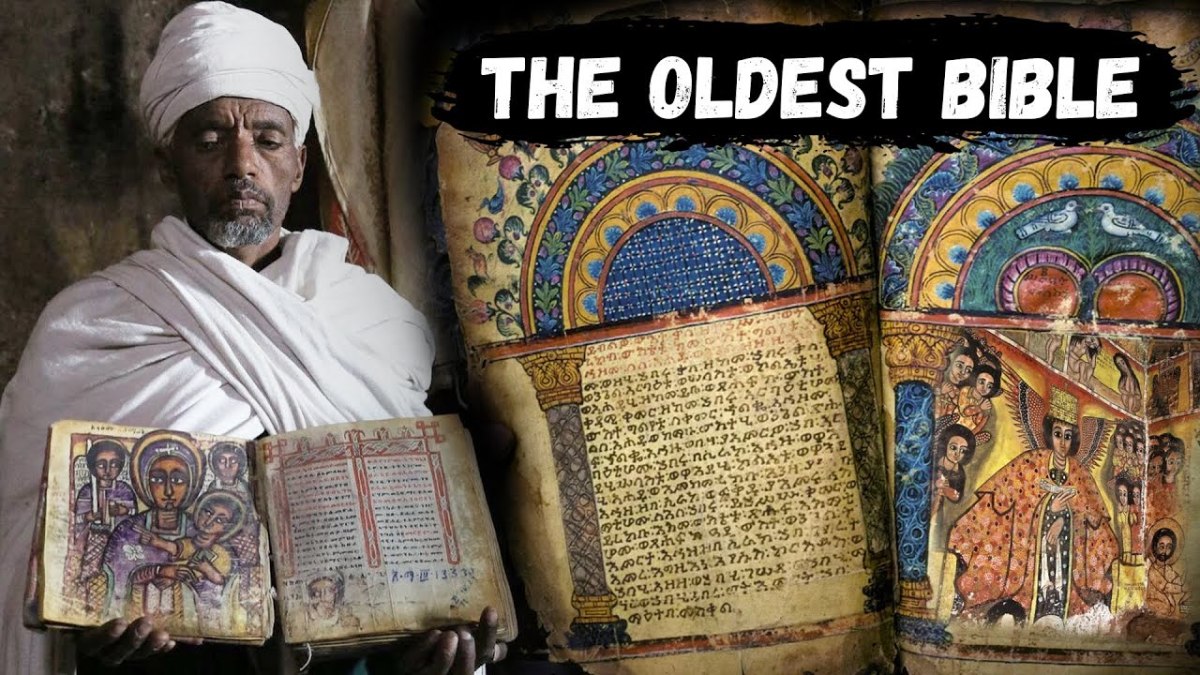Nobodies of the Bible: Abram
Nobody? Abram became Abraham, one of the biggest somebodies in the Bible. But he didn't start out that way. He started out as nothing but a name in the last line of Shem's genealogy: Shem. Arphaxad. Shelah. Eber. Peleg. Reu. Serug. Nahor. Terah, who became the father of Abram, Nahor, and Haran (Genesis 11:26). Yawn --the end of the last of a bunch of boring names of nobodies. Because Abram eventually became somebody, Genesis goes on to say a few words about his father Terah.
Terah had three sons and lived in Ur of the Chaldeans. One of the sons, Haran, had a son named Lot and died in Ur. The other two married in Ur. Abram, at least, did not have children. Later in Genesis, we find a list of Nahor's children. Perhaps he had started his family in Ur, because the next thing we learn is that Terah, his orphaned grandson Lot and his childless son Abram decided to move from Ur to Canaan, but stopped in Haran.
At first, I thought they moved to the middle of nowhere and named their settlement for the deceased son/father/brother, but reference works say that Ur and Haran were both major trade centers. Haran was a logical stop on the way from Ur to Canaan.
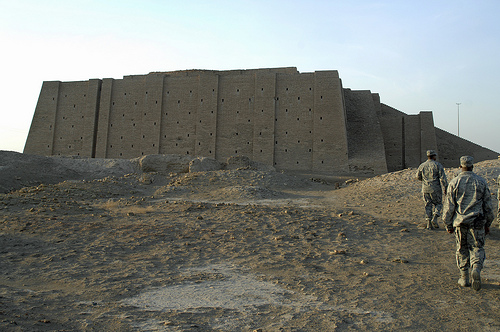
Not only that, but the whole region was home to an amazingly sophisticated and intellectual society. These ancient Mesopotamians became the first people to learn to measure the motions of the sun, moon, and stars. They invented the science of astronomy. That discovery led to practical applications like the calendar.
Unfortunately, they also began a process that has continued unabated ever since. They turned their scientific discovery not only to good uses, but evil. They wanted to use their knowledge to control what happened here on earth and in the process began to worship the heavenly bodies, and especially the moon. Like the majority of the world's population both before and since, they preferred to worship anything except the living God.
So Ur and Haran were centers not only of trade and science, but also a system of paganism that ultimately led to a small class of incredibly rich and powerful people who exploited large numbers of poor people. The whole concept of law came from Mesopotamia, but so did tyranny. We see that as one of the root inspirations of the Tower of Babel.
Was Abram listed first among Terah's sons because he was the firstborn? Or because he became the most important. It doesn't say. How long had he lived in Ur and how long did he stay in Haran? It doesn't say. Were Terah and Abram moon worshipers, or did they leave Ur because they didn't like the spiritual atmosphere there? There are lots of things we'd be interested to know, but the Bible doesn't say.
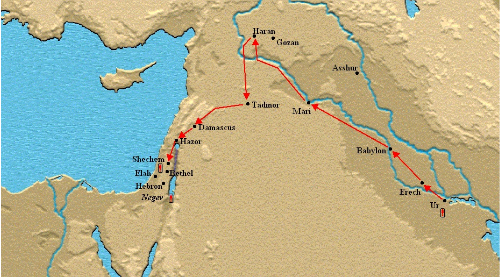
God calls Abram
God's call of Abram marks the first major turning point in the Bible. Before, the book of Genesis largely consists of genealogies punctuated by disasters (the fall, the first murder, a growing wickedness that resulted in the flood, the repopulation of the earth by more more people who turned out to be wicked and godless, culminating in the tower of Babel). Now we begin to read about the first fully formed personality in Scripture and the beginning of God's plan of redemption.
God told Abram to leave his homeland, his people, and in particular, his father's household and go. . . . Well, God didn't exactly say anything more than, "I'll tell you when you get there." According to Acts 7:4, God spoke these words when Abram still lived in Ur, not after he moved to Haran. Stopping in Haran looks like a mistake. Or maybe it was a delay that left Abram chomping at the bit in frustration and tested his faith until he was able to go. Again, the Bible doesn't say.
Abram had no children in Ur, yet God promised to make a great nation of him. That promise comprises six statements beginning "I will" and one beginning "you will." God only knows how old he was at the time, but Abram was 75 when he left Haran. He still had no children.
So for however many years, he had lived with a promise that existed entirely in some vague, unknown future and some unknown place. He shouldn't have taken Lot with him, but just think of what it meant for a childless man to pack up and set out towards Canaan, having no real idea if that was his real destination? All in pursuit of a promise that required a son for any of it to happen.
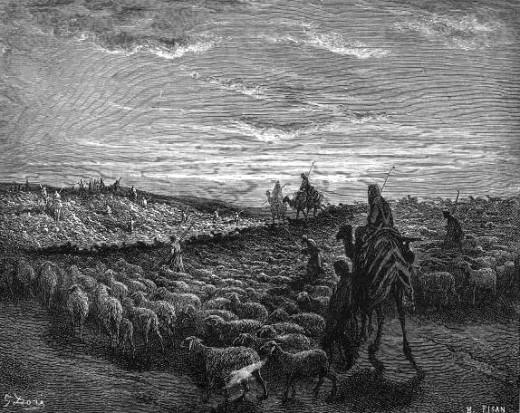
So he, his wife, his nephew, and all his servants set out for Canaan. They had to go somewhere, and Canaan had been Terah's intended destination. Maybe that's why they chose Canaan. The only direction Abram knew would be the wrong way would have been back to Ur.
And that would have been the easiest thing to do. How many of us, after living with great thoughts of a great future for a long time and not seeing a glimmer of fruition, would still pursue it instead of just giving up?
I don't know how long it would have taken to get from Haran to even the outermost part of the land of Canaan, but Abram kept traveling through the land until he came to Shechem. That's in the pass between Mount Ebal and Mount Gerazim, right in the middle of the land of Canaan. It became a major place of decision and momentous events for generations. When Abram first saw it, a Canaanite shrine was apparently already there.
At Shechem, God told Abram that he would give the land not to him, but to his offspring. Abram worshiped God by building an altar. He had left pagan Ur, and perhaps practiced moon worship there himself, but he met the living God and conformed his life from that time on to serving him. He had stayed in pagan Haran for a while, and now, when God reveals that he has come to the land that his offspring will inherit, it is another pagan center. Abram's altar therefore means more than worship of the one God. It also means repudiation of all rival gods.
He moved on and pitched a tent, but built another altar. A tent is a temporary structure, and Abram lived as a nomad for the rest of his life. The altar remained. At this second altar, Abram called on the name of the Lord. By adding prayer to his worship and calling on the name of a God apparently unknown to anyone else in the world, he planted a flag and claimed the land for offspring not yet born.
Other articles in this series
- Nobodies of the Bible: Agabus, courageous New Testament prophet
New Testament prophet? The Bible names a few. Agabus' two brief appearances both changed the course of the narrative. - Nobodies of the Bible: Amaziah, the half-hearted king
The half-hearted can't expect to accomplish anything. The bitterness of failure can lead to self-destructive choices. Serve God with all your heart! - Nobodies of the Bible: Ananias of Damascus
What would you do if God gave you the address of a terrorist and told you to got there and pray with him? Ananias went. His prayer changed the world. - Nobodies of the Bible: Elizabeth and the birth of Jesus
She was the wife of a priest, but if they were good people, why had God kept them from having children? God's timing and priorities aren't the same as humans'. That's sufficient answer to a silly question. - Nobodies of the Bible: Jairus, the Woman with the Hemorrhage, and Lessons in Faith
Jesus agreed to go to Jairus' house and heal his daughter. On the way, a woman interrupted them and Jesus gave her his full attention. She got her healing because of her faith. Jairus' daughter revived because of his faith. - Nobodies of the Bible: Manoah and his wife, Samson's parents
Samson may be the most disappointing of all Bible heroes, but don't blame his parents. They did everything right. - Nobodies of the Bible: Priscilla and Aquila
Full-time Christian ministry is not limited to professionals. These enterprising tent makers are great role models for the laity. - Nobodies of the Bible: the widow of Zarephath and biblical prosperity
A young widow thought she was destitute. God thought she was prosperous and arranged for her to feed the prophet Elijah. So she did. She never had more than a little flour and a little oil, but invested a third of it into Elijah's ministry day after
From Abram to Abraham
The nomadic life is one constant journey. In the Middle Ages, a class of worker would arise called the journeyman, and we can see that Abraham became a journeyman when he built these altars. Not only was he a nomad, but like medieval journeymen, he had completed his apprenticeship. Having been trained, he was qualified to work for someone else, but not yet qualified to be a master. No one under the sun who works for God is ever qualified to be a master. Abram was the first to qualify as a journeyman.
The Jewish nation came from Abraham's loins. So did the Arabs. Abraham's faith forms the foundation of the Christian doctrine of justification by faith. But have we seen Abraham in this story yet? No. He's still Abram, still a nobody. He remembers the promise, but still has trouble believing it. According to Romans 4:3, the foundation of Abraham's faith is where Scripture says, "Abraham believed God, and it was credited to him as righteousness."
After Abram pitched his tent built that second altar, Genesis describes some worthy things he did and some cowardly things he did. He continued to worship and serve God, but God did not say another word to him until Genesis 15:1, "Do not be afraid, Abram, I am your shield, your very great reward."
Abram immediately responded with his doubts, worries, and frustrations. God had first spoken to him in Ur, when he had no children. He was 75 when he left Haran. He had no children then, either, but he was only five years older than Terah at the birth of his first son. But now? He was 85 and still childless. He had designated one of his servants as his heir. He responded to God by complaining about his lack.
He was a lot like many people in the church who continue to worship and pray and do all the right things. They don't give in to the pressure of a surrounding society that has no respect for the faith they profess. But then, they don't really believe it themselves, either. They make their own plan B. They'll believe in God, but not believe his promises. They'll cheerfully go through religious motions, but not expect God to actually do anything.
That attitude fully describes Abram when God spoke. In response, God told him specifically that he would have a son from his own body and showed him all the stars in the night sky. Abram couldn't count them. Neither, said God, would he be able to count all of his descendants.
Had anything changed? After all, Abram was still an 85-year-old childless man. Nothing outwardly changed, but it is at that point that Scripture says Abram believed God, and God credited it to him as righteousness (Genesis 15:6). That, by the way, is the first use of any form of "believe" in the Bible. Nowhere does it say that Abel, Enoch, or Noah believed God. Abram had no logical basis to believe God, no tangible evidence at all. Yet he believed anyway.
That is when and why a nobody of the Bible became somebody, although God did not change his name at that time. I can imagine that Abram ran excitedly to Sarai and announced that God had promised he would have a son from his own body. Sarai said, "Well, he didn't say anything about mine, did he? Here's Hagar." In believing her more than he trusted God, he merely delayed the promised son Isaac another thirteen years.
Yet the fact remains, Abram believed God and as a result God counted him as righteous. He still committed some foolish and cowardly acts before he died. Being counted as righteous is no guarantee against lapsing into momentary sin. It is a guarantee against living as a sinner. Abram believed God in a way no one ever had in all of human history. Believing God in that same way will make every nobody into somebody.





